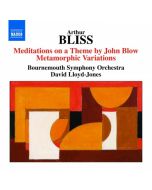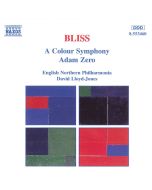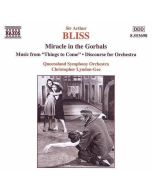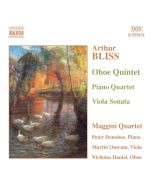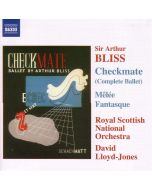
(Produkt nie został jeszcze oceniony)
kompozytor
Bliss, Arthur
tytuł
BLISS: Clarinet Quintet, String Quartet
wykonawcy
Campbell, David, Maggini Quartet
nr katalogowy
8.557394
opis
After composing works with programmatic or dramatic subjects, Bliss frequently felt the need to write a purely abstract work. Hence the Second String Quartet came in the wake of the opera The Olympians: as he wrote in As I Remember, ‘I retreated into the intimate and private world of chamber music’. He composed the quartet in 1950 dedicating it to the members of the Griller Quartet in honour of their twentieth anniversary and they gave the première at the Edinburgh Festival that year. Bliss felt that ‘it grew into the most substantial chamber work that I had attempted’ and it is indeed a powerful and rigorous essay in compositional skill.
As in many of Bliss’s works the inspiration of a great artist was a powerful stimulus in the composition of the Clarinet Quintet. In this instance it was Frederick Thurston who, together with the Kutcher Quartet, gave the first performance at the composer’s home in December 1932. It was dedicated to Bliss’s friend the composer Bernard van Dieren. Clearly Bliss loved the clarinet, and significantly it was the instrument of his brother Kennard, who had been killed in the First World War. As the quintet was the next work to be composed after Morning Heroes, Bliss’s overtly public requiem for his beloved brother, it is possible to view it as a further expression of his loss. Undoubtedly the work is one of his finest achievements.
nośnik
CD x 1
wydawca
Naxos
data wydania
11.10.2004
EAN / kod kreskowy
747313239429
58,00 zł
Produkt na zamówienie
Wysyłka ustalana indywidualnie.
Darmowa wysyłka dla zamówień powyżej 300 zł!
Darmowy kurier dla zamówień powyżej 500 zł!
sprawdź koszty wysyłki